|
4/25/2018 Poetry by Lauren GargiuloEverything I have ever done to my body: Bruised it Cut it Sexed it Scratched it Loved it Hated it Cursed it Starved it Fucked it Stroked it Changed it Burnt it Shaved it Beat it Dyed it Torn it Waxed it Praised it Pierced it Kept it Healed it Fixed it Marked it Bled it Worn it Stretched it Grew it Bleached it Honed it Raised it Owned it Crushes-A Step-By-Step How to:
Heart is fire When my heart would not stop beating /so fast, so hard it was tearing itself out of my chest/i caught It in my right hand, match in my left hand/life became fire /blood once again fuel instead of whatcouldhavebeen congealing in my veins/tearing up the oxygen in my lungs /i put the ashes back inside the cavity of my chest/fell into a painless sleep for the first time in weeks/as i was dreaming of feeling like what i heard healthy was/it regrew, fire proof. So i took a lighter to my hair/started a fire from top to bottom/until all that was left was/defects/Everything I was burnt up/except the proof/ I Was Here.  Bio: Lauren Gargiulo is a published writer from and living in Vancouver BC. Lauren is currently completing a BA in English Literature from Queen’s University. In the little spare time that exists, Lauren enjoys reading, working on screenplays and slowly but surely compiling beer and book related research for an upcoming blog. You can find Lauren on Twitter at @GargiuloLauren 4/24/2018 On the Way Down by Kristin TrujilloOn the Way Down Hospitals are cold and uninviting, yet we visit them frequently—whether for ourselves or for someone else; we sit there smelling the bland meatloaf and alcohol-based cleaning fluids and for some reason there’s always a hint of broccoli which grosses me out; the smell of fresh flowers meant to cheer up an unsuspecting patient who might be like my grandma—hooked up to some strange beeping machine because they can’t breathe for themselves; the thought of a machine breathing for her suddenly cuts off my own air supply; the hushed whispers around me ring loud and clear in my ears and I try to shut them out because it’s making my head spin, but then I hear my mother cry out like I’ve never heard before which makes everything stop for a split second and then speed up like a race car competing in the Daytona 500; my hands are sweating but the rest of me is freezing, and they’re shaking like I have a mild case of Parkinson’s; between my mind racing and the smell of broccoli, it’s taking everything in my power not to vomit uncontrollably; my chest hurts but I can’t concentrate on that because I’m trying to focus on my own breathing, which is getting harder with each passing minute; the nurse walks in to remove the breathing tube from my grandmother’s dry lips and I catch the sight of her gagging as it’s being pulled out; when I think it can’t get worse, it just did, and now I have to walk away and try to rid myself of that image; my mother is crying in the corner of the waiting room and I can’t go to her because I can’t even breathe myself, so I go into the restroom instead and I sit there and cry myself into oblivion because this woman who I stupidly thought would live forever is now living her last few moments and I’m here in an unwelcoming restroom by myself while my family huddles around her bedside; when I finally catch my breath enough to function I walk back into her room and find my grandfather bending over her, whispering about how much he loves her and dabbing a wet sponge to her lips to give her some comfort and my mom is sitting next to her bed holding her hand that gets colder and colder; she can’t speak but she blinks when we ask her questions and she smiles when I joke about how much she loves me; this fragile, classy woman who has been the backbone for the family is now fading away and we can do nothing to stop it; my mind is still racing as I contemplate the finality of death and how I’ll never hear her voice again and how I won’t ever see her giggle with her whole body and how the loss will affect my grandfather whose heart is breaking; and how this won’t be the last time I’m visited by my new friend I call anxiety.  Bio: Kristin spends her time perfecting the art of sarcasm, binge-watching and concert-going. She is a published poet with a BA in English | Creative Writing from the University of Central Florida. Her passions include reading, writing, music and pop culture. When she’s not living in the pages of books or spending time with her niece, you can find her reviewing TV shows, music and movies on her blog, According to Kristin. Lost, Without Compass or Star For my mother, Brenda Lynette Creighton, 1919-2014 I put my hand to the tiller, turn this creaking vessel into a darkly rumbling surge of grief, bewilderment and betrayal, finding in love and forgiveness wind sufficient to fill my little sail and lift me up and over the tumult into water deep and gentle and sorrowfully compassionate. Clouds dissipate. The stars are out. The surge flows smoothly. My arm, steady on the tiller, holds the course firm and true. I know extreme age stole all her best qualities, her vision, judgment, empathy and most especially, honesty. Without vigour to guide her way, she drifted vulnerably across the dark. There are no quiet, protected waters, only sailing on a sea that alternately shimmers or looms. One day, inevitably, the gift of an overflowing surge will come. Best if it arrives before capacity to raise your own sail is lost. She was always gentle and kind. What cast her loose, set her drifting on a last dark voyage that belied all her previous voyaging? 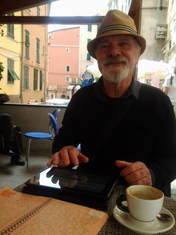 Bio: Neil Creighton is an Australian poet whose work as a teacher of English and Drama brought him into close contact with thousands of young lives, most happy and triumphant but too many tragically filled with neglect. It also made him intensely aware of how opportunity is so unequally proportioned and his work reflects strong interest in social justice. Recent publications include Poetry Quarterly, Poeming Pigeon, Poets Reading the News, New Verse News, Autumn Sky Daily, Praxis Mag Online, Ekphrastic Review, Social Justice Poetry and Verse-Virtual, where he is a Contributing Editor. He blogs at windofflowers.blogspot.com.au To write well, to write at all, is to listen closely - to the spaces between what a person says, to the small silences, the almost indiscernible shifts in tone. It is to observe from one's own place the place of another, it is to travel, exchange positions and mix other walks of life with our own. There's no one way to do anything. The entry into words is multiple and shifting constantly. This is its grace; that one can't pin the formula down. Devon Balwit's poems are listeners in the night. A news story prompts reflections on the horrors of war, ecological disaster inspire reflections on the earth's deep damage, a painting; an opportunity to explore the meaning of light and the force of color. Balwit's poems are more than travelers, they are witnesses. As Devon writes in Luminescence "we'll get no second chances." We might as well begin to attune ourselves, not just to what is inside of us, but to everything that sits in between, where the crossing becomes its own translation. It might just be that a poem always starts there. AHC: How did your first book change your life? How does your most recent work compare to your previous? How does it feel different? Devon: Hah! I have to laugh. I was jonesing to publish my first book, thinking that it would grant me some kind of legitimacy as a poet. Then, after I had done so, I realized that it changed nothing at all. The human animal, or at least my particular/peculiar double-helix, always manages to project contentment further into the future. Publishing my first book gave way to anguish over no one reading or reviewing the book, which gave way to wanting to publish the next book, which gave way to wanting my book/poems to be spoken about in a certain way by certain people, etc. etc. Of course, books are cool. Your name is on the cover! They look wonderful—especially all pristine in the box that arrives on your door step. You can carry them to readings marked with sticky tabs. But, the wisest thing for me to do is to keep my little egg of contentment centered inside my own ribs rather than externalized elsewhere. AHC: How long does it take to start any particular writing project? Does your writing initially come quickly, or is it a slow process? Do first drafts appear looking close to their final shape, or does your work come out of copious notes? Devon: My writing comes quickly as my brain is a busy place. Most of my poems undergo constant revisions even after publication (as when I move them from a journal or chapbook to a larger collection), sometimes dramatically, sometimes more line edits, line breaks, stanzas, word choice, verb tense. I never take notes to write—except for reviews (although I do keep a journal of favorite lines for any book that I am reading—these often become epigraphs for poems). AHC: Where does a poem or work of prose usually begin for you? Are you an author of short pieces that end up combining into a larger project, or are you working on a "book" from the very beginning? Devon: Individual poems begin with an image, a situation/news event, a line, or a form or format that I want to experiment with. Sometimes they begin as a conversation with another poem, not necessarily from a striking line used as an epigraph, but with its style. For example, recently I noticed that many widely-celebrated poets use nouns for verbs. (Perhaps that’s something they teach in MFA programs?) Anyway, that device was striking in its pervasiveness…so I wanted to spoof that—Turns out I really liked the jagged, fresh effect of “nouning” and want to try it more. Chapbooks are easier for me to plan and execute than full-length collections. The idea of 15-20 poems on a theme seems a natural unit. When I read a compelling work of writing, I jot down quotes which, themselves, suggest poems. Thus came a chap inspired by Flannery O’Connor’s Wise-Blood, one by Melville’s Moby Dick, one by Sylvia Plath’s Ariel poems, one by Michel Leiris’ book Phantom Africa. However, creating full-length collections frustrate the hell out of me. I have so many poems in so many styles and voices that it’s hard to wrestle them into a cohesive shape. The poems always come first and then comes the pressure to do something with them, the feeling that I should be working up and sending out collections or chapbooks rather than endlessly publishing individual or small suites of poems. AHC: Are public readings part of or counter to your creative process? Are you the sort of writer who enjoys doing readings? Devon: I like doing readings but must confess to sadness when the crowd is small—like only the poets and the poets’ relatives! That’s a painful feeling, like having few (or no one) like a poem on FB (or just my mom ☺). It’s great to have a sense of audience, to see what people react to (or don’t). I stand up when I write, so it feels natural to stand when I read. If I can, I choose to go without a mic, preferring to move around and project as I do in the classroom. AHC: What is the best piece of advice you've heard (not necessarily given to you directly)? Devon: The best advice I ever got was from a poet-peer, Anatoly Molotkov. He told me that he doesn’t hesitate to send out the same work over and over until it’s picked up. That might mean he submits a piece 30, 40, or 50 times. That information was hugely liberating. After a couple of rejections, I would have assumed my work was “bad,” and ditched those pieces. Also helpful was the news from many editors that female submitters tend not to resubmit to journals that reject them while males do. I make sure to resubmit. Of course, it gets painful and feels personal when the same journal rejects my work again and again, but at least I know that I didn’t shy away from the pain and self-doubt that comes from rejection. If I believe in the work, I will keep submitting it. AHC: What kind of writing routine do you tend to keep, or do you even have one? How does a typical day (for you) begin? Devon: I wake up early, take the dog out to buy time, start coffee and forget to drink it, and go upstairs to my daughter’s bedroom-turned-office while she’s away at college and write until my husband yells that it’s time for work, drag my heels until he yells--really time! I’m not kidding!--and then I dash around hoping to remember all my clothing for teaching. (Once it was raining, and I forgot that I’d thrown rain pants over my pajama bottoms to walk the dog, so had to pretend to my students that my pajamas were some sort of stylish lounge wear…) After work, I again play with the dog and write until I can’t see straight. I try to read. (Like most people I know, I struggle to leave my computer and read uninterruptedly. I used to read for hours at a time.) AHC: When your writing gets stalled, where do you turn or return for (for lack of a better word) inspiration? Devon: My writing doesn’t usually get stalled, but sometimes my ego tanks when I’ve received too many rejections in a row. Then I remember how many FB posts I’ve read by poets/writers I admire who lament laboring on in obscurity, and I realize this sine curve of exhilaration / despair comes with the territory. It is just the way writers feel. AHC: What fragrance reminds you of home? Devon: Ferret shit. My house is a sty, so if it smells of compost and black mold, that’s home. I’d much rather write than clean. AHC: David W. McFadden once said that books come from books, but are there any other forms that influence your work, whether nature, music, science or visual art? Devon: While I love to listen to live music—especially jazz and classical, I never ever turn on the radio and rarely am inspired to write by songs. Instead, I’m drawn to the visual arts. I write many ekphrastic poems. I grew up in a house filled with art. My mother is a painter and my step-father a photographer. I spent many hours in museums, studios, and darkrooms. The walls of my childhood home were covered with paintings, drawings, lithographs, collages. The shelves and counter-tops were thick with statues, vases, decorated boxes, and bones. I love to dig around in on-line sites like Raw Vision and ars gratia artis-mutatis mutandis for compelling works or better yet, to use the paintings, drawings, and collages of FB friends as spring-boards to poems. AHC: What other writers or writings are important for your work, or simply your life outside of your work? Devon: I take special interest in popular science—books about genetics, disease, insects, artificial intelligence, biomes, and animals. I also like reading travelogues and history. I’m amazed by intrepid characters like Wilfred Thesiger and Earnest Shackleton. AHC: What would you like to do that you haven't yet done? Devon: I am assuming you mean as a writer. I would love to have a book solicited by a press. (Does that even happen? I have had poems solicited and was so blown away by that.) Like any poet, I dream of receiving a grant to write or of having a writing patron like the classical musicians of old did (although I wouldn’t want to live sequestered away at Esterhazy like Haydn…). I would love, for even a month, to be in the black on submissions/payments received. AHC: What was the last great book you read? What was the last great film? Devon: I loved Julian Barnes’ The Noise of Time, Amor Towles’ Book A Gentleman in Moscow, and Primo Levi’s If Not Now, When? I’m not much of a movie watcher but loved the Netflix series Babylon Berlin and Fauda. AHC: What are you currently working on? Devon: I’m always trying to slow down and whip a full-length collection into shape…and usually forgo that discipline to generate yet another new poem… Devon's collections We are Procession, Seismograph and Motes at Play in the Halls of Light are both available for purchase on Amazon. INHALER DISCHARGER FOR DEAD BATTERIES The skin you stacked inside me is talking, and has turned into an asshole. Gestated, it grew before I knew what it was, then it was too late. It waggles its limbs around and scrapes me at night, all those hours spent in the murky dark of that room you’ve not seen since you died back then, my will enslaved to the cheek of your cute spawn, like you sent me a sick joke as a wreath. I’m not laughing—it tickles too hard, with its moxie. It’s more triumphant now, banging out taps for yes, taps for no, changing its mind what means what and when. My hunch is that it’s angry it will never see the sun casting light over the world, so in the day I stare at the richness of sun rays as they fall and cover, and take special notice of the beauty of light on the mundane, like the path I so happen to take, with its bits of curled up dead grass slowly blowing across shadows made by branches. The turmoil it feels paralyses it for the light hours of the day, and I know I’ve antagonised it because its retributions in the dark take on a viciousness that responds in direct proportion to my experience of the beauties of my day. I played with this at first, my own resentments of the skin you gift me taking prominence. So many times I’ve been tempted to starve you out, thinking my food is what is keeping your skin alive. Truth is, I don’t know what state it’s in, what constitutes its life, or if it is alive in any sense that I recognise. I may deny myself nourishment only to have your skin turn its attentions to my insides to feed on me, gaining its strength as I waste away. Bet you would’ve appreciated that, the numbing prettiness of such an event, the atrophied elegance. When you died I stole some stuff from your house. You were there, dead in the living room like a pauper lying in state, and while your endless relatives filed past you I climbed the stairs to your childhood bedroom and smashed the china money-box moulded in the shape of ALF. No one heard the sound of me breaking it, as one of the aunts—who had only met you a few times and not since you were a kid you told me—wailed histrionically downstairs somewhere. Wonder what’s happened to her to make her bawl at the lifeless flesh of a distant relative like that. You hadn’t saved much, or if you had you hadn’t stored it in ALF, him holding a few pounds and some dog-eared cigarette cards featuring various cacti. I did cut myself on one of the shattered pieces though, blood dripping onto the undersized desktop. The crying from downstairs died down and I took my throbbing finger over to your bed, where you must’ve slept almost every night until you went to university, and squeezed as hard as I could until every drop of my red blood formed a viscid circle inhabiting the centre of the plain grey pillow, where your head had been. An antenna stuck me in the foot, peeking out from underneath the bed. I leaned down and dragged it out. A black walkie talkie, not a cheap child’s one, this was more advanced, looked like it could have a far travelling signal. Behind it sat its pair, which I grabbed, smearing them both with my blood. Then I left without saying goodbye and never went back, and your family did what I wanted and ignored me in return. My room doesn’t make me feel better anymore, only worse. Stains suctioned onto every hint of you, though you weren’t here very often. That time the inhaler wouldn’t work at first, the smell. I wasn’t the exclusive girl to make you breathe hard, but you said you only used the inhaler because of me. Did you think of me then, sucking at it, at the end? The air sits among the tastiness of remembering in maximum doses, lolled over my tongue stickily. Since you stopped living you mean a lot more to me, to everyone. I saw your neck most of all, because of how you placed me, because of where I was the most. Indiscreet, the switch to afterwards, all the fuss blooms in square rooms. Cut the stems, wash the feet, bow to some imagined onlooker, curtsy to love. The pens dropped like divining sticks onto the carpet, as I needed the jar quick. That night of the day you died, when I spasmed wholeheartedly because I’d not had the nerve yet to tell you, and now mootness fell and rocked until all was physical anyway, and I couldn’t avoid it anymore. It didn’t look like a kid yet, at least I don’t think so, but I put it in the jar very fast on purpose, because I didn’t really want to see, you know? The pens and their pattern. I’m still trying to figure it out. Deep in my neck of the woods this time. I took the climb to where I buried the jar, a place from when I was really young, means nothing to you. It glints from the earth, winks and runs scarlet underneath, like it wants a trade. I found some batteries at the back of a drawer in the basement, for the walkie talkies, so they work now, for how long I don’t know. They hiss. I’ve left one with the jar and sometimes I think I hear things, but it’s probably just animals. I wonder if I scare them with my voice. Dried blood flecks off on my thumb, my blood from your house. 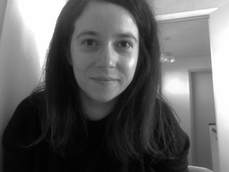 Bio: Rebecca Gransden lives on an island and writes sometimes. She can be found on Twitter @rlgransden and online occasionally at rebeccagransden.wordpress.com 4/21/2018 Poetry by Peter Burghardt Ben Churchill CC
Snooze button it takes long so mystic becomes streetlights where day used to come a bird on the fence is banded elsewhere notness grows into you washing my neck in the dark I said I’d see no nothing but meant I’m with the mud and can’t walk inside or ruin it imagine it’s like what you beg for when you shouldn’t mix insomnia with your other abyss you tell yourself you’ll pay for it we’re always paying for what we thought inheritance would be though the mail still comes on Saturdays our neighbor is thinking of slaughtering his rooster Coach Our sleep’s raw plume trailed in the sky after the experience our friends had taken to be with each other its not time that we expected to compact our rituals that pass into the eye and past the instant I take a lyft back home to my work though now it is raining again turbulence relegated above me a seat without walls 4/10/17 I build glimmer and it turns out to be as reckless as it sounds every person I know does this too builds that which is so tangible in one’s apprehension one becomes the eye touching the dark with its own antennae a wand of parlor tricks to help sleep and feed the life of the brain which I hear is an ever depreciating asset or worse worth nothing like your testicles nothing to science and if science won’t hold our shared delusions then we should find Nate Silver and bury the present deserved Bio: Peter Burghardt is a poetry writer based in Oakland, CA, where he co-publishes speCt books. He is the author of Cosmic American Music (Old Gold, 2017), and his recent work has appeared in such journals as The Elephants, Tammy, The Offending Adam, Witness, The Laurel Review, and White Stag. 4/20/2018 Poetry by Daniel Edward MooreStay for the apneic embrace, the moment you get all hyped up, blue-lipped & brave & witness the act of not leaving. Spare your eyes a sorrowful fall over my shoulder’s flannel cliff & down your silky bra. Make the unnatural natural. Do what it takes to be still as a grave committed to holding you down. It’s the dirt we have on each other, the red silhouettes of Georgia clay ghosting themselves in the wind-chimes. The body has done a fabulous thing chaining our spirits to loss. What better reason to squeeze and squirm, as if there was someplace safe to go. Those dangerous times were bone breaking blues, a hairline gospel from the fault line of heaven. Remain on the coast, surfing breath with me. Drowning is nothing but the last cocktail. The Past Others were involved. It remains unclear how much they knew about their participation. Only a few stood out. Mainly the taller ego driven by beautiful inches above the waist and the ugly ones below. I remember playing charades. I remember passing out at the point the future thought it was me. Someone said he cared enough to ask me for my number. Someone said he kissed a tiger making love to a hunter’s gun after the trigger failed to do its one and only job. Unemployment was a consequence of no application besides the one for a bouncer on call in hell. There was turmoil on the tundra. Jungle fever was the only source of light we had for months. Amyl Nitrate took the place of father’s Old Spice skin. Others became less involved. Blood pressure soared on the dance room floor like climbers drunk on Everest. Snow became our weather choice for noses freezing in August. Columbian men wore suits of money bought with desperation. We were 20 going on 90 with no steering wheel or brakes, plastic men on birthday cakes protecting the sugar from burning. Cavity’s lingered in holes created by the tooth fairy’s promise of cash. Others were no longer involved. What the mouth surrendered, the mind accepted, silence ate the calendar whole like 31 days of cancer cells rolling the dice to win and lose and train the hand all over again to throw the world away. Play the Alarm According to the minute just before now the one where the wind and the grocery cart sang to me through a cement wall thicker than the heart of a homeless man you know the one where you’re choking the phone acting as if you’re a bullet away from being a eulogy nobody wrote acting as if only three numbers matter to you and Osama Bin Laden whose gone whose memory boils the blood in your hands whose fear winds tight the cortisol clock and you’re one call away from a red flashing light arriving to tell you its a chain link gate banging your brain on the dumpster’s dark door singing to you through a cement wall a song about the minute just after this the one where you play the alarm.  Bio: Daniel Edward Moore’s poems have been published in journals such as: The Spoon River Poetry Review, Rattle, Columbia Journal, New South, The American Journal of Poetry and others. His poems are currently at Mandala, Lullwater Review, december Magazine, Natural Bridge Literary Journal, Scalawag Magazine, Tule Review, Hot Metal Bridge, Fire Poetry Journal, West Texas literary Review and RAW Journal of Arts. His book “Confessions of a Pentecostal Buddhist” can be found on Amazon. He lives in Washington on Whidbey Island. Visit Daniel at danieledwardmoore.com/ 4/18/2018 Poetry by Parker G. JamiesonShe likes the part in Milton’s epic about making man into a sinner We breathed up lyrics for folk music: Let’s go smoke a black together, Let’s follow the sorrow amongst the cushion of darkness. The ruminated breath disposed us to elder hollows And calm intrusion Of nights incriminating Lithe dysphonic harmonies. We talked about the salt lamps desire, It suffers conveniently under our pointed blame. We talked about the riddance of guilt It’s means of causing a shiver to wilt Amongst the anorexic oaks in winter – to accept the hell Of our vulnerability. The abolishing, apple sting, lying Below the surfaced scabs – where bliss escapes Despite the love that shared its hand. Let’s go smoke a black together, Let’s follow the sorrow amongst its cushioned darkness. We never wanted to stray too far. We found ourselves beside a lake From happy digressions inconvenient fumbling. We shared a cigarette. We shared the smoke that pulled us together Without even knowing. Without even knowing The word communion. The dying of a primrose’ fantasy Your words spill over me like blood. I long for their healing, their place Amongst my chaos garden – No one comes here but me. I’m looked down upon as if I were an asylum. I taste the purity bubbling Inside the pebbled cells, the ones Who tongue their way to the shore, A place that is me Where oxygen doesn’t last as long As the suns enormous squares, where a blonde girl Stands at the end of its road That holds a sign that shrieks No Outlet. This girl holds her hat and umbrella As the hurricane comes bolting Above the forest. The bruised atmosphere Burrows in wooded environments, the outer Swollen. Your words spill over But they’re not yours anymore They’re my fury, my exasperation – This dream fails to last as well. You’re beginning to float away In polka-dotted dichotomies. The street-light cannot reach far enough to catch you. Someone shouts From an unseen edge, Their voice also fails to stay put. Except miseries little storm, That’s much bigger when your apart of its bizarre Discomfort that makes its cradle its grave. I dreamt I took a trip to see you somewhere in the sunshine state. It’s relieving to know you live, Especially somewhere inside me Like a coconut within a palm tree. You’re always out of reach – I don’t wanna spend my money to buy a ladder That I’d never use again. It’s way too simple to access excessive Limits, the ones that hide you in death – Their stings are tuned far beyond An orange’s sense perception. Morphine bullets, and stapled mornings Are what transcends the meaning of black-and-white To show me you, Whether it happens or not I’ll find a way to blame myself, Or god’s incriminating eye. But everything else that’s Seamed up inside this state Is bright and soft And lets me know That you’re also happy In some distant place I haven’t been before. Paper mache Studded slabs Your fingers Aim by adhesives. Collage A mess one calls a life Is licked, enveloped And folded By swollen motions. Layers increase like hell In cafeterias Bound by blonde Interpretations of dare Undone. She makeshifts Probable circulations Overcoming ebony Of next week Last week It’s pasted On diagrams Of feminine retribution, She says the poison’s From her cuddled insurrection A long precise And gorgeous composition Of cover-up Hardening amongst the cool air. When the orchestra Cries In some disguised room Behind the world That collage Begins To fall apart – She beings To cry Away her cover-up. Bio: Parker G. Jamieson lives in New York. He goes to school for enviromental studies and environmental law. He is the editor of the SUNY-ECC lit mag Mutata Re, and he also works at the Marilla cemetery. He has been writing for years and still doesn't know why, but he loves it. · · · — — — · · · CC first day of spring across from you while listening to “cuddled up. [lofi / jazzhop / chill mix]” by the Jazz Hop Cafe channel and “Aika - Neon Pink (feat. Hana)” nothing really tastes good anymore. dining hall food’s not bad the wait in line not that long at this hour the conversations not too loud but i still feel restless like the wind that’s swatting ice and snow into everyone’s faces. when i see you walking towards me unexpectedly i sort of want to leave. i’ve learned to acknowledge my desire to spend time with you as remnants of a love that you would’ve refused. we’re friends and i want to stay friends and i don’t want you to think otherwise but sometimes sitting across from you hurts and despite the snow settling over the dead leaves the roots needed to be dug out and the resulting shift in soil left room for weeds. talking to you sometimes is like eating a snowball. a numbing that stings the teeth heavies the tongue makes the words hard and stiff so they land on the soil like rocks and not seeds and you can’t plant rocks and rocks don’t let things grow and besides it’s snowing right now so i imagine everything that i want to express is no longer living but the dead plant sometimes peeks through my smiles and glances where i pretend that your mouth is not adorable and your cheeks are not pinchable and your hair is not the kind of soft i want to touch. but i know that we would’ve died from hypothermia. i’ve avoided the potential breakage by swallowing the words. i’m full of rocks and snow. i eat when i’m not hungry to avoid starving but when i eat normally i never feel full. there’s a pocket of wet frost in my throat the shape of every moment where i hugged you and you stiffened didn’t hug me back told me that you don’t know how to give me hugs without feeling like you can’t offer as much warmth. i wish you would’ve told me to screw off. i don’t know how to eat lunch or dinner with you anymore. we’ll sit across from each other me with some pasta you with a plate of something i know you won’t finish and we’ll talk about your day because i don’t feel like bringing up mine and you’ll say that you’re tired meanwhile i want to say that i’m tired too but for different reasons. first day of spring and it’s snowing. my succulents are watching the outside with a quiet sort of fascination and i know they want to get closer but they instinctively know that they can’t. the sky’s obscured by yesterday’s frost and i’m developing an ache that tells me my inside is syncing up with my outside again. i’ll be coughing up snow and sighing dreams for the rest of the day. wish i could talk about flowers or warmth or the artwork i saw on instagram. wish i could dwell more on the possible internship stipend i might get, the kanji that i need to learn by next monday for my japanese class, or something else besides you because if i don’t clear out this fog i’ll always be clouded. but feelings always leave a kind of frostbite with me. i’m eating pasta with soupy alfredo sauce and a dry roast beef wrap and nothing tastes good anymore ever since i went home for the holidays and had real food and nothing tastes good when the world is trying to drown me in a season that i’m trying to move on from and nothing tastes good when the snow in your throat makes everything go down cold and sometimes insipid, obviously unloved, seasoned but not flavorful, or maybe that’s just my tongue saying that there’s so much that needs to come out that nothing can come in. full of a lonely that’s always hungry, i dump my plate into the trash. leaving you behind to finish your meal, i resolve to fold this pain into a paper plane and send it flying into the white mouth of the sky. i hope the clouds enjoy the snack. 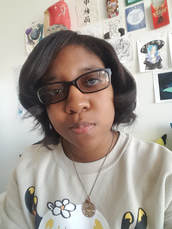 Bio: Dynas Johnson is an English major at Temple University and a contributing editor for Hyphen, Temple’s undergraduate literary magazine. She has poems featured in Sooth Swarm Journal, Ghost Proposal, Rogue Agent, and Vagabond City Lit. When she is not writing, she can be found studying, listening to BTS, or looking for new bubble tea places. You can find her on Instagram: @dynasaur0 and on tumblr: https://shuidinosaurs.tumblr.com/. 4/16/2018 Poetry by Darren C. DemareePOEM FOR KATIE, QUEEN OF OHIO #2 I will prove to you the placement of the sky is portable. Each landscape is a negotiation. Ohio is a bad deal that already loves you & questions your father. Be mutiny. Goddamn, Katie you are hope. I hope you fight. POEM FOR KATIE, QUEEN OF OHIO #3 I know there are soft parts of you. Keep them if you want to. Abandon them behind the Lucky’s if you want to. Use my name however you choose. Any fire you start you have to remember to shout out loud the abstractions of what hardened you. Dance next to the fire. A queen never runs away from that much color.  Bio: Darren's poems have appeared, or are scheduled to appear in numerous magazines/journals, including Diode, Meridian, New Letters, Diagram, and the Colorado Review. He is the author of eight poetry collections, most recently ''Two Towns Over' (March 2018), which was selected as the winner of the Louise Bogan Award by Trio House Press. He is the Managing Editor of the Best of the Net Anthology and Ovenbird Poetry. He is currently living and writing in Columbus, Ohio with his wife and children. |
AuthorWrite something about yourself. No need to be fancy, just an overview. Archives
April 2024
Categories |
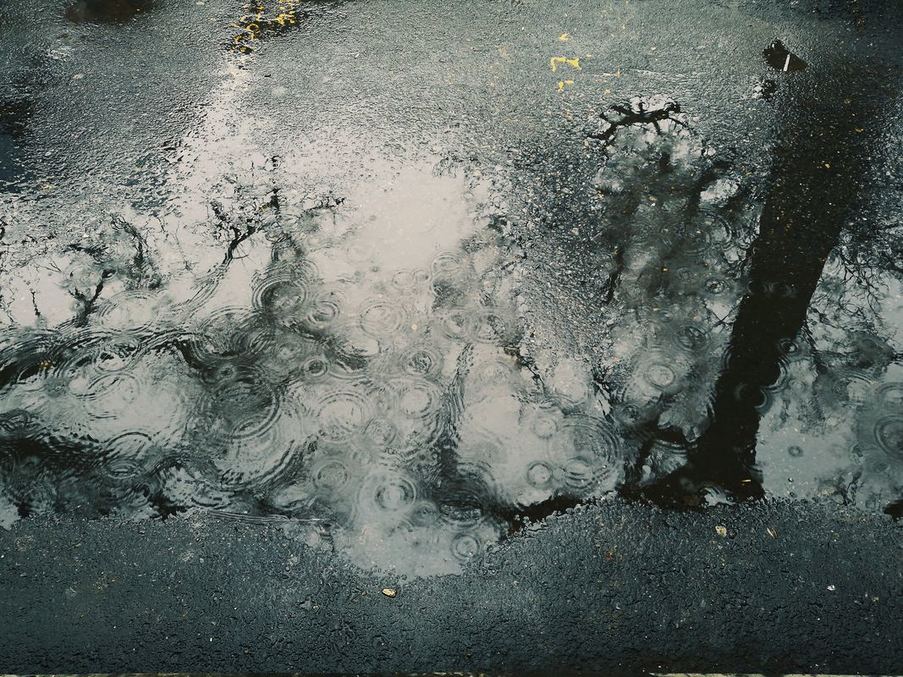
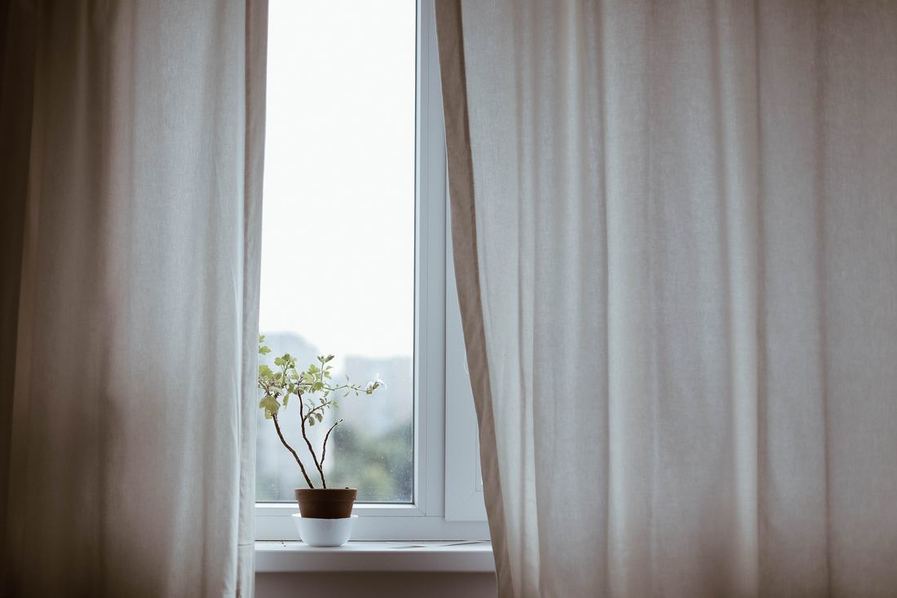
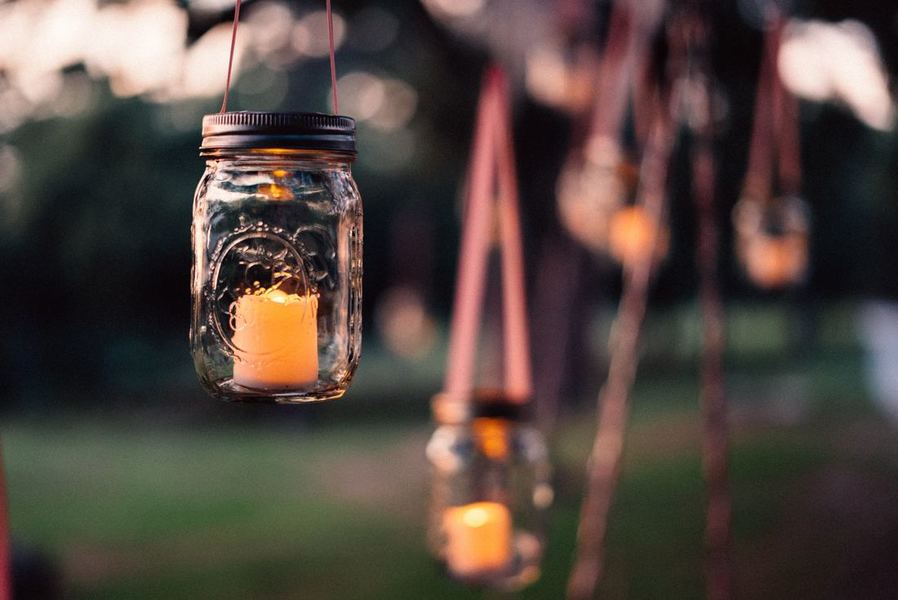
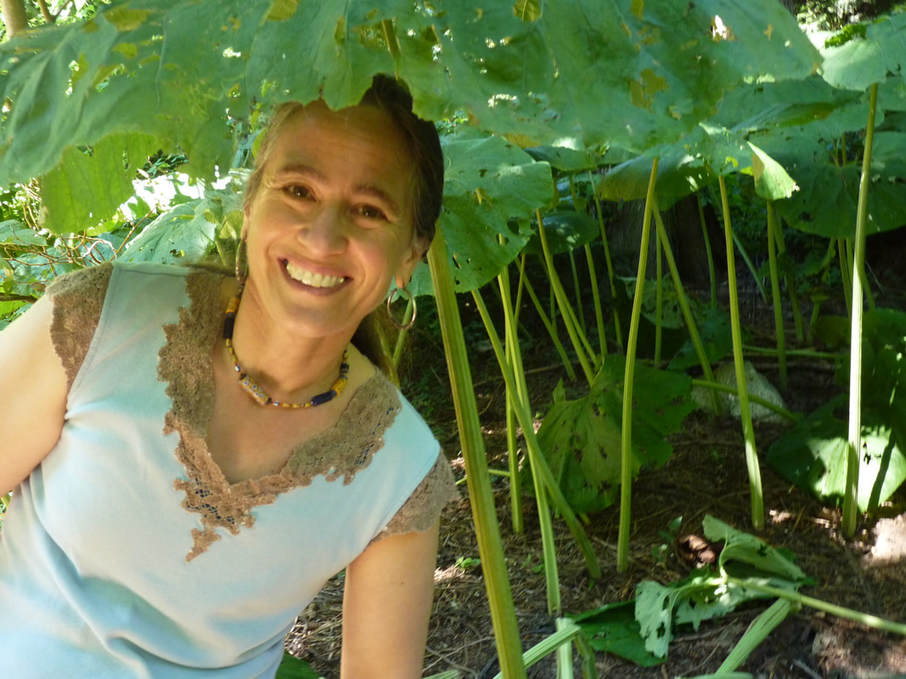

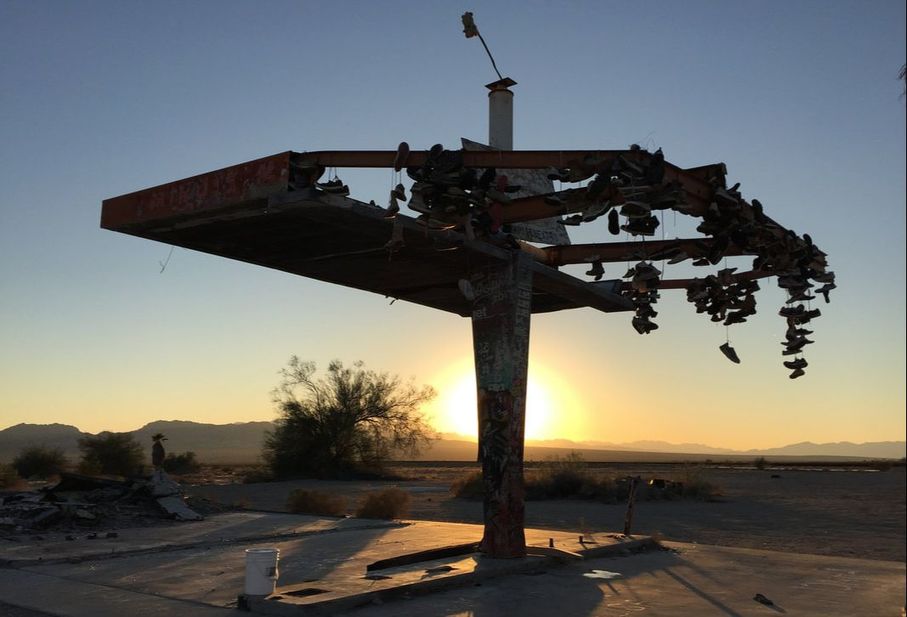
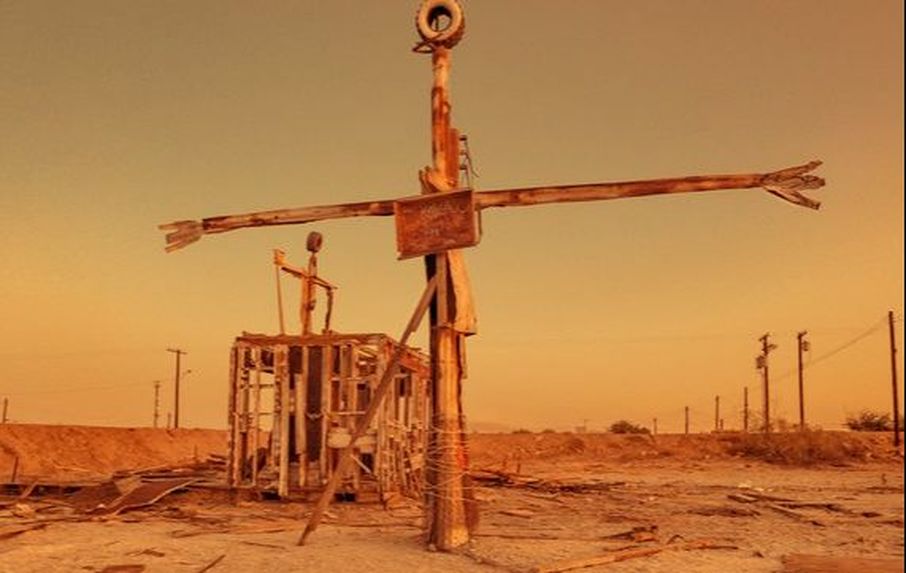
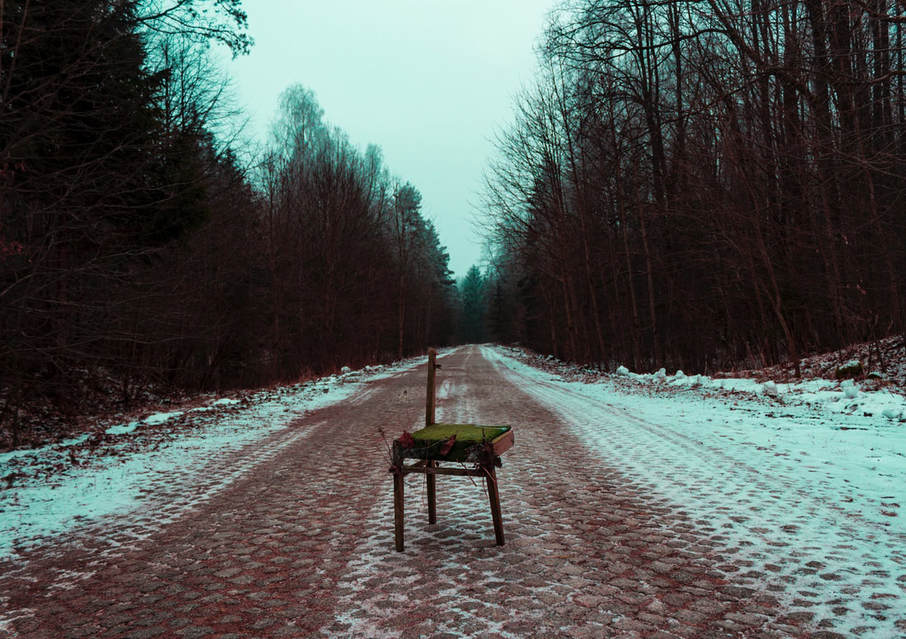
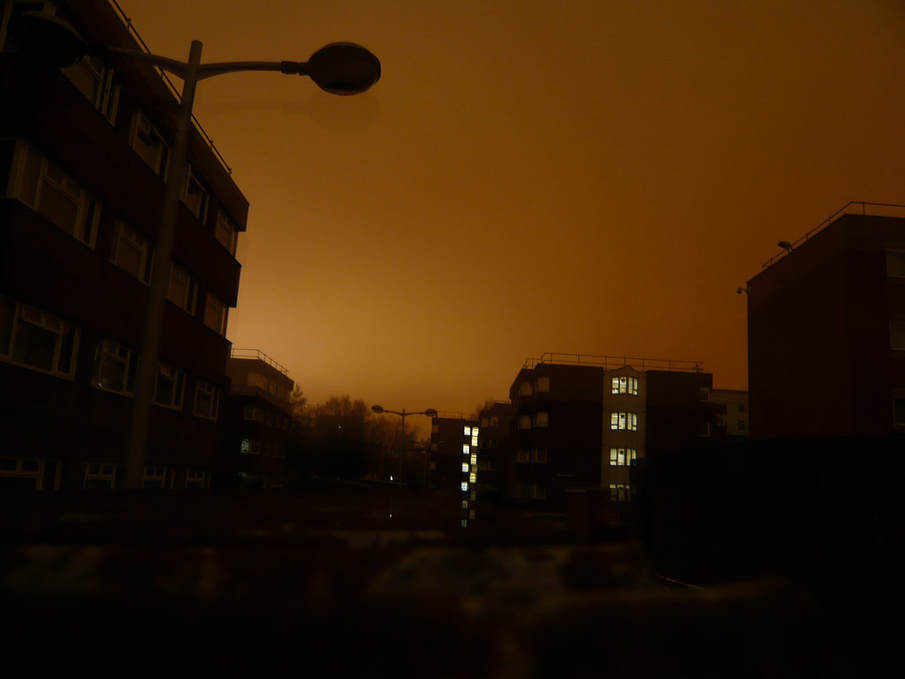
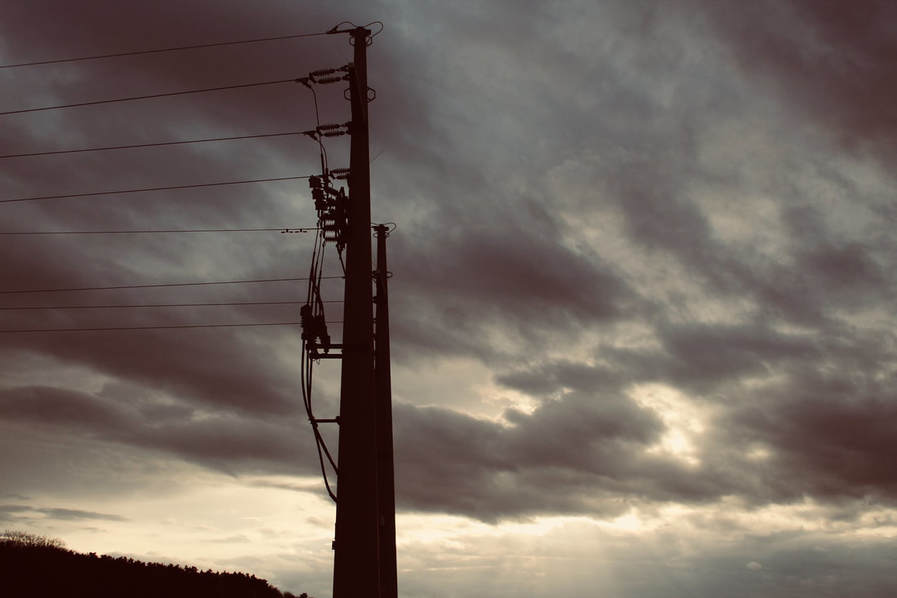
 RSS Feed
RSS Feed
